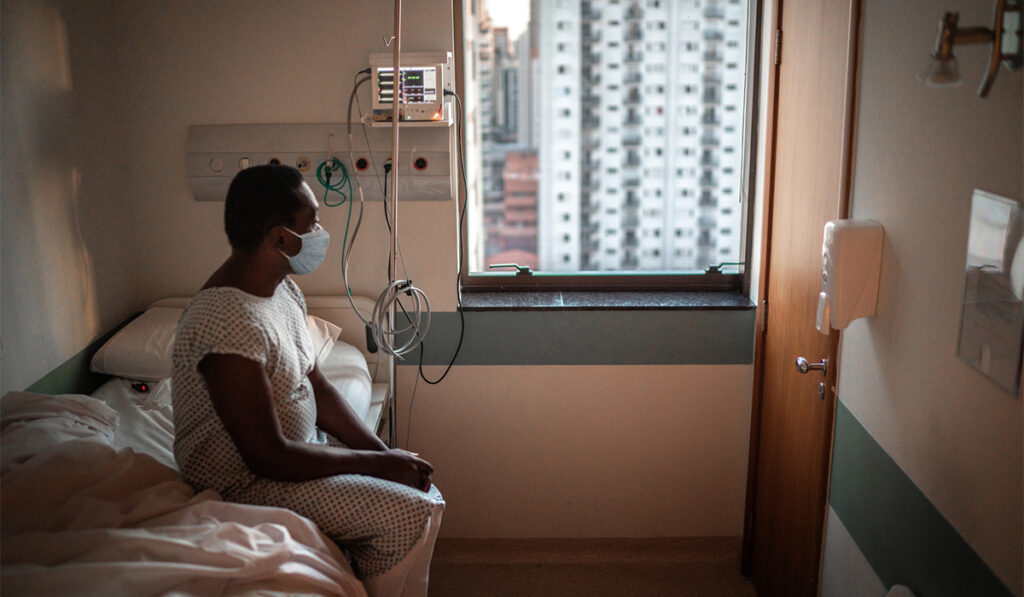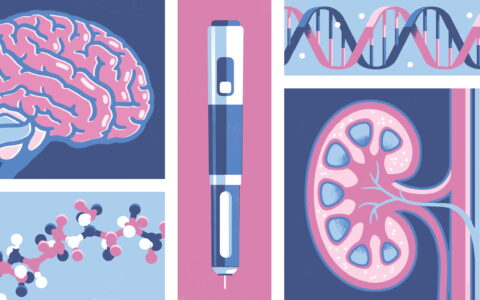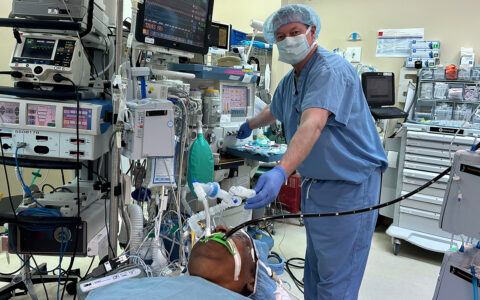A sweeping analysis published in JAMA Internal Medicine found people harboring apolipoprotein 1 (APOL1) gene variants were at increased risk of developing acute kidney injury (AKI) and dying following hospitalization for COVID-19.
The APOL1 variants protect against a parasitic infection native to Africa but are associated with kidney disease in African Americans. Approximately one-third of African Americans carry one APOL1 risk gene (known as G1); about 13 percent carry two (G2).
The study united dozens of researchers across the United States, including Vanderbilt University Medical Center nephrologist and first author Adriana Hung, M.D., who expects to see the findings make their way into critical-care decisions.
“We think it will be very informative to understand if people have these gene variants that put them at increased risk to make decisions about tailoring therapy for them,” Hung said.
The authors note that these APOL1 gene variations seem to increase risk of acute, chronic, and nondiabetic kidney disease among African Americans. Variants may also increase risk of other conditions, though results are mixed.
The role of APOL1 had not previously been analyzed in the setting of COVID-19, despite Black race identified as a risk factor for elevated rates of AKI among hospitalized patients.
“We wanted to understand what was behind this increased risk, besides being critically ill,” Hung said.
Powered by Veterans
The recent analysis leveraged the Million Veterans Program, a database and biorepository maintained by the U.S. Department of Veterans Affairs. Hung serves as principal investigator for Million Veterans Program studies at Vanderbilt.
The researchers analyzed hospital data from 990 veterans (91 percent male) with African ancestry who were hospitalized with COVID-19 between March 2020 and January 2021. The study participants were admitted across 63 different hospitals, including Vanderbilt.
People with two APOL1 risk genes were twice as likely to suffer severe AKI and death following COVID-19 compared to participants with only one or no APOL1 risk genes. Even people with normal kidney function at admission were at an elevated risk of AKI and death if they carried an APOL1 risk variant.
In total, half the participants with two APOL1 risk variants developed AKI, and nearly 1 in 5 died. Hung says this critical finding may help bolster an association between APOL1 and AKI.
“Although case studies have reported an association of APOL1 mutations and focal segmental glomerulosclerosis that can cause kidney damage or failure, our study provides – for the first time – information about the association of APOL1 with AKI in a large cohort,” Hung said.
Responding to Controversy
Research has not produced clear answers regard to any true genetic underpinning to AKI, thus Hung and colleagues tackled a somewhat murky issue.
“In the general population, the association of APOL1 and AKI and APOL1 and death has been controversial,” the authors wrote, citing variable study populations, AKI definitions, and potential environmental or genetic confounders.
To address this, Hung’s team used carefully curated creatinine-based definitions of AKI and kidney replacement therapy in their analyses. They also incorporated extensive baseline data and inpatient exposures, which strengthened their findings.
Hung is hopeful the nationwide study may help put some of the controversy to rest, and confer broader patient benefit in the post-COVID era.
“We also wonder if these findings may be extrapolated to individuals with APOL1 high-risk variants who are critically ill for other reasons,” she said.





